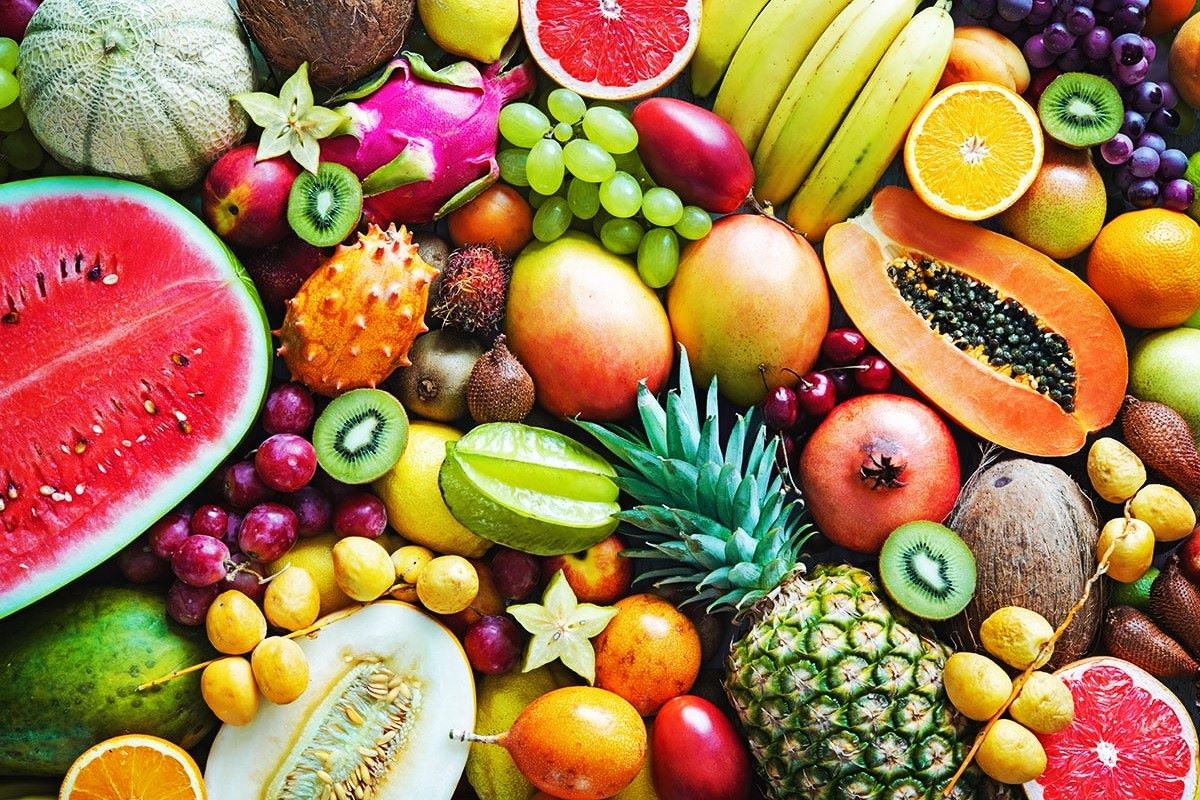
Ever wondered how many calories lurk in your favorite fruits? Calories in fruits can vary widely, and knowing these numbers can help you make healthier choices. For example, a medium apple packs about 95 calories, while a banana contains around 105. Grapes? Just 62 calories per cup. But don't let the numbers scare you away from enjoying these natural treats. Fruits are loaded with vitamins, minerals, and fiber, making them essential for a balanced diet. Curious about other fruits? We've got the facts you need to keep your diet on track. Let's dive into the juicy details and uncover the calorie counts of 18 popular fruits.
What Are Calories?
Calories measure energy. They fuel our bodies, helping us perform daily activities. Fruits, being natural sources of energy, contain varying calorie amounts. Let's explore some interesting facts about calories in fruits.
Low-Calorie Fruits
Some fruits are low in calories, making them perfect for those watching their intake. Here are a few examples:
- Strawberries: One cup of strawberries has about 49 calories. They are also rich in vitamin C and antioxidants.
- Watermelon: A cup of diced watermelon contains around 46 calories. It's mostly water, which helps keep you hydrated.
- Cantaloupe: One cup of cantaloupe has approximately 53 calories. It's also a good source of vitamins A and C.
- Peaches: A medium peach has about 59 calories. Peaches are also high in fiber and vitamins.
Moderate-Calorie Fruits
These fruits have a moderate calorie count, balancing energy and nutrition:
- Apples: A medium apple contains roughly 95 calories. Apples are high in fiber, which aids digestion.
- Oranges: One medium orange has about 62 calories. They are famous for their vitamin C content.
- Pineapple: A cup of pineapple chunks has around 82 calories. Pineapples are rich in vitamins and enzymes that aid digestion.
- Blueberries: One cup of blueberries contains about 84 calories. They are packed with antioxidants and vitamins.
High-Calorie Fruits
Some fruits have higher calorie counts but are still nutritious:
- Bananas: A medium banana has about 105 calories. Bananas are a great source of potassium and fiber.
- Grapes: One cup of grapes contains around 104 calories. They are also high in vitamins C and K.
- Avocados: Half an avocado has approximately 120 calories. Avocados are rich in healthy fats and fiber.
- Mangoes: One cup of sliced mango has about 99 calories. Mangoes are high in vitamins A and C.
Dried Fruits
Dried fruits are calorie-dense due to their reduced water content:
- Raisins: A quarter cup of raisins contains around 108 calories. They are also high in iron and potassium.
- Dates: One date has about 20 calories. Dates are rich in fiber and natural sugars.
- Dried Apricots: A quarter cup of dried apricots has approximately 78 calories. They are high in vitamins A and E.
- Prunes: Five prunes contain about 100 calories. Prunes are well-known for their fiber content and digestive benefits.
Exotic Fruits
Exotic fruits can add variety to your diet with unique flavors and calorie counts:
- Dragon Fruit: One cup of dragon fruit has around 60 calories. It's also rich in antioxidants and vitamin C.
- Passion Fruit: One passion fruit contains about 17 calories. It's high in fiber and vitamin C.
Final Thoughts on Fruit Calories
Understanding calories in fruits helps make smarter dietary choices. Fruits like apples, bananas, and oranges offer essential nutrients without excessive calories. Berries and melons are low-calorie options packed with vitamins and antioxidants. Avocados and coconuts are higher in calories but provide healthy fats. Balancing fruit intake with other food groups ensures a well-rounded diet. Remember, portion sizes matter. Even low-calorie fruits can add up if eaten in large quantities. Incorporating a variety of fruits into your meals not only keeps things interesting but also maximizes nutritional benefits. So, next time you reach for a snack, consider a piece of fruit. It’s a tasty, nutritious choice that supports overall health.
Was this page helpful?
Our commitment to delivering trustworthy and engaging content is at the heart of what we do. Each fact on our site is contributed by real users like you, bringing a wealth of diverse insights and information. To ensure the highest standards of accuracy and reliability, our dedicated editors meticulously review each submission. This process guarantees that the facts we share are not only fascinating but also credible. Trust in our commitment to quality and authenticity as you explore and learn with us.


